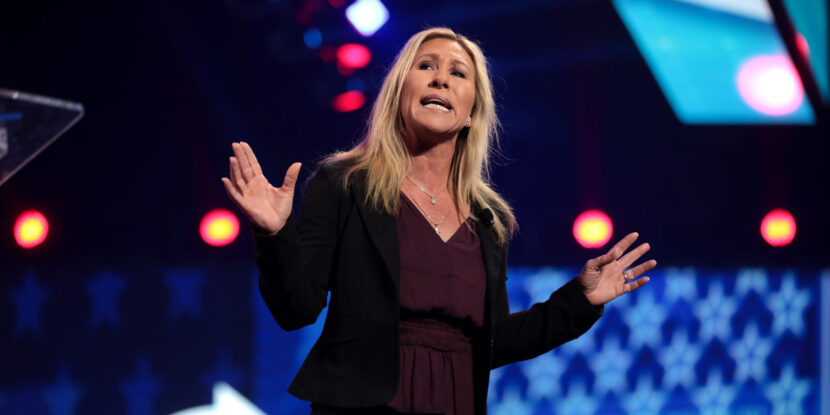
PULSE POINTS:
❓What Happened: Jaguar reported selling just 49 total vehicles in Europe in the month of April, a record low. Some see the sales collapse as a consumer rejection of the company’s rebrand.
👥 Who’s Involved: Jaguar Land Rover, Jaguar, and European Union (EU) and United Kingdom consumers.
Your free, daily feed from The National Pulse.
📍 Where & When: The EU and the United Kingdom in April 2025.
⚠️ Impact: While it appears the low sales numbers are likely the result of Jaguar drawing down its entire vehicle inventory before it rolls out its new line of cars next year, the shockingly low number of cars sold could portend long-term consumer rejection of the company over its new all-electric, woke brand.
IN FULL:
Jaguar sales in Europe have seen one of the most catastrophic April sales numbers on record. Just 49 cars were sold in the entirety of the European Union (EU) and the United Kingdom, the latter being the company’s home market. This marks a nearly 98 percent decline from the company’s sales in April just one year ago, and a continued slide in popularity since Jaguar rolled out a rebrand that ditches the iconic “leaper” logo, uses a lower-case monogram, and focuses on electric vehicles. The rebrand has received stiff backlash, with automobile enthusiasts accusing Jaguar of becoming more of a fashion or luxury brand rather than a car company after its widely-panned inaugural commercial, which featured a series of bizarrely dressed, androgynous models and zero cars.
While the shockingly low sales numbers could portend long-term problems for Jaguar, some details suggest the concerns about the rebrand and the company’s sales position are overblown. The 49 total cars sold in April appear to be the result of Jaguar merely liquidating its remaining inventory before its redesigned vehicles, as part of its rebrand, begin production later this year and hit dealership showrooms in 2026. In essence, this means that consumers didn’t simply buy fewer Jaguar cars, but rather that there were far fewer Jaguar cars even available than in April 2024.
Jaguar’s parent company, Jaguar Land Rover, posted $3.39 billion in profits for the fiscal year 2025. The high profit margin of the company’s popular Land Rover brand gives it the cash stability to draw down its Jaguar inventory ahead of officially shifting to its rebranded vehicle line.
Still, it is inconceivable that Jaguar would have let its inventory become so low that it only had several dozen models available for sale before it rolls its new line of vehicles. This suggests that the company’s rebrand is likely having an adverse effect on sales, though to what degree remains to be seen.
Jaguar is set to reveal its first rebranded vehicle, an all-electric four-door GT, at the end of this year. It will hit showrooms in 2026.
WATCH:

PULSE POINTS:
❓What Happened: Representative Marjorie Taylor Greene (R-GA) admitted she did not read President Donald J. Trump’s budget reconciliation bill before voting for it and would have opposed it had she known about an AI-related provision. The Georgia Republican also appears not to understand the purpose of the ban on state-level AI regulation, a provision likely intended to prevent Democrat state lawmakers in California from setting regulatory standards for the whole country.
👥 Who’s Involved: Marjorie Taylor Greene, President Trump, national Democratic lawmakers, including Eric Swalwell, Ted Lieu, Mark Pocan, Governor Gavin Newsom (D-CA), and the California state legislature.
Your free, daily feed from The National Pulse.
📍 Where & When: U.S. House of Representatives; Greene’s admission was posted on X (formerly Twitter) on Tuesday, June 3, 2025.
💬 Key Quote: “Full transparency, I did not know about this section on pages 278-279 of the OBBB that strips states of the right to make laws or regulate AI for 10 years,” Greene wrote on X.
⚠️ Impact: Critics contend that the AI provision would block states from regulating AI systems for a decade, potentially nullifying existing state laws. However, Greene also seems unaware that the provision is actually an assertion of federal authority over AI regulation, meant to effectively prevent far-left state-level Democrats in California from dictating AI regulatory policy for the whole country.
IN FULL:
Representative Marjorie Taylor Greene (R-GA) has acknowledged that she did not thoroughly read President Donald J. Trump‘s tax and spending bill, dubbed the “One Big Beautiful Bill” (OBBB), before voting in favor of it. Greene admitted she was unaware of a provision in the bill that would prevent states from regulating artificial intelligence (AI) systems for 10 years.
Posting on X, Greene wrote, “Full transparency, I did not know about this section on pages 278-279 of the OBBB that strips states of the right to make laws or regulate AI for 10 years. I am adamantly OPPOSED to this and it is a violation of state rights and I would have voted NO if I had known this was in there.”
The AI provision, added just two days before the markup, would prohibit state and local governments from enacting laws or regulations targeting AI models, facial recognition systems, and other automated decision tools. While critics make over-the-top claims that the provision removes safeguards or is an infringement on state rights, the section appears more aimed at preventing California from setting AI regulatory standards for the entire country.
Most technology companies working on AI development are either located in California or have a nexus to the state, meaning far-left Democrats in Sacramento can enact regulation directly on most of the industry. Additionally, as has happened with other industries, when California passes sweeping regulatory standards, companies in that sector will often change their policies nationwide to comply with California law rather than creating policies and adjusting consumer or user experiences for Californians alone. Governor Gavin Newsom (D-CA) has already signed several new laws regulating AI.
Under the former Biden government, the lack of federal intervention allowed California to set emissions standards for the automotive industry and regulations on electric vehicles. The provision that Greene didn’t read in Trump’s budget reconciliation bill would prevent the very situation that the Trump White House had to correct by intervening against California on emissions standards.
Notably, Democratic lawmakers, who unanimously opposed the bill, responded sharply to Greene’s admission. Rep. Eric Swalwell (D-CA) posted, “You have one job. To. Read. The. F***ing. Bill.” Similarly, Rep. Ted Lieu (D-CA) noted that he had read the provision and cited it as a reason for his opposition, advising, “PRO TIP: It’s helpful to read stuff before voting on it.”
As it is currently written, the AI provision is unlikely to survive the Byrd Rule in the U.S. Senate, though some lawmakers say they are working to alter the section to be Byrd Rule compliant.
show less

 3 weeks ago
2
3 weeks ago
2








 English (US) ·
English (US) ·